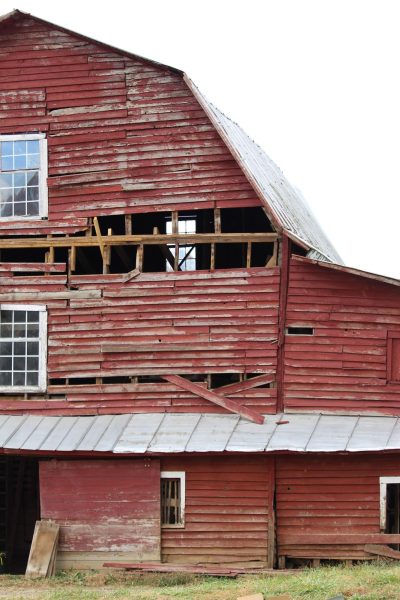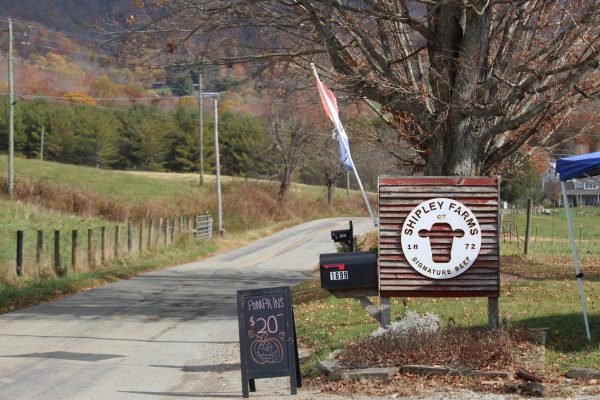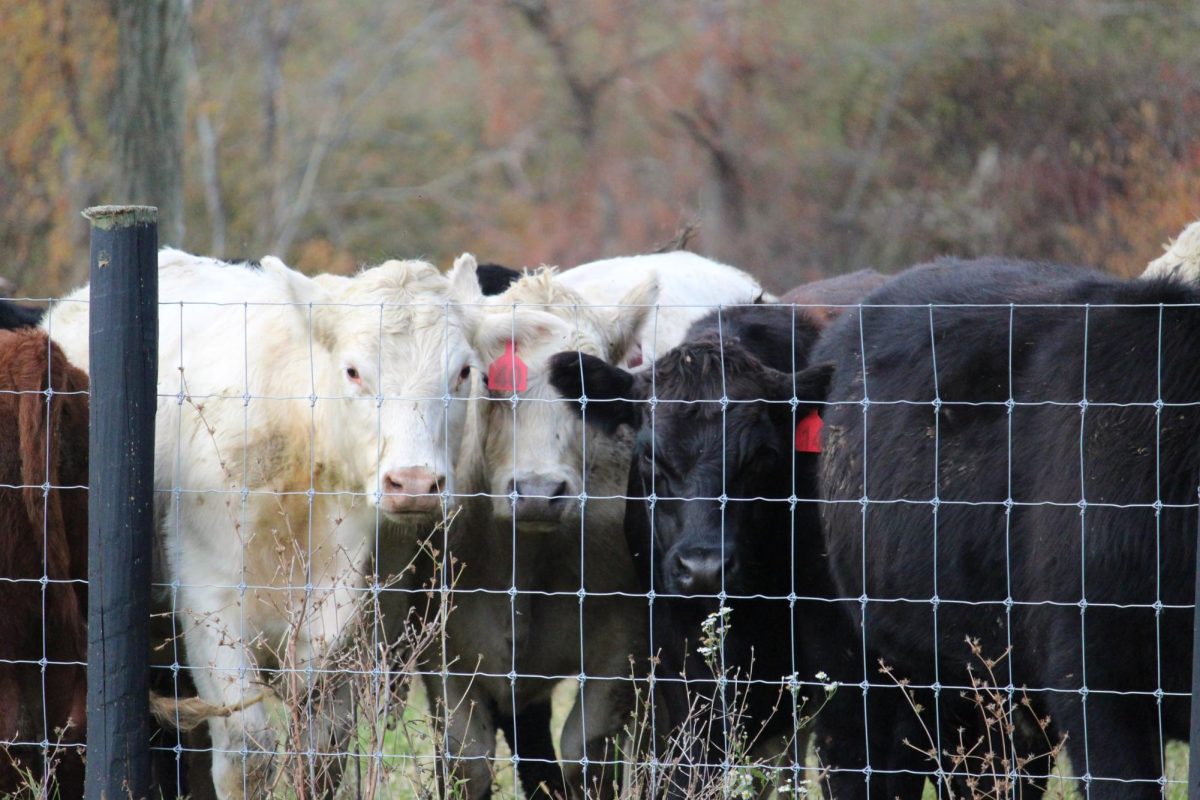Among the devastation of Hurricane Helene in Western North Carolina in September, Watauga County and the High Country were hit hard. High winds, floods, mudslides and numerous circumstances made a wreck of the land.
The Town of Boone and App State have some sense of normalcy over a month out, but rural areas of the county are still reeling. Although homes and roads can be rebuilt, reviving the agricultural economy in the rural parts of the county could be more complicated.
“Everything that could have gone wrong did,” said Amy Fiedler, an owner of Springhouse Farms in Vilas.
Springhouse Farms grows produce and flowers and places an emphasis on being a woman-owned business. They endured significant damage during the storm.
The worst of the damage came from the floods. A produce stand on the farm property was swept away, and most of Fiedler’s sales came from the stand.
Before the storm, the property experienced a drought and break-ins from deer eating their crops. For farmers like Fiedler whose income and livelihood depends on the quality of their growing season, Helene was a worst-case scenario.
“We are not in control of so many of the variables,” Fiedler said. “We have to roll with the punches and diversify.”
Springhouse Farms and others in the area already took steps to diversify before Helene. Recently, the agritourism business has drawn visitors into Watauga County seeking perspective on the mountain lifestyle. In the case of Springhouse Farms, they offer farm-to-table dinners on their property, rent out a pavilion for private events and host flower-picking on Fridays and Saturdays.
Helene struck Western North Carolina just as the peak tourist season was beginning. Because of the timing of the storm, farms like Springhouse lost out on much of what would have been a valuable means of recovery.
Fiedler, an App State graduate who is passionate about the climate and environmental justice, is concerned that these storms will become commonplace.
A unique aspect of farms in Watauga County is that because of their small size and relative isolation, they are able to experiment with sustainable farming techniques. Springhouse Farms takes advantage of this, pushing plant-based agriculture and environmental responsibility. They plan to continue this stronger than before once they are fully back on their feet.
“What’s special about Watauga County is that we don’t individually grow anything that changes the world,” Fielder said. “But together, we make a difference.”
Shipley Farms, a cattle farm in Vilas, has also felt the impacts of Helene. They had eight mudslides on their property, losing a significant amount of pasture land as a result. They also experienced flooding and wind damage, losing one of their offices. The 150-year old barn that has held up since the farm’s founding was damaged, but still stands.

“The cows are as happy as they can be,” said Gray Shipley, a fifth-generation farmer. “They’ve just been grazing as usual, haven’t noticed a thing. They’re smarter than we are.”
Shipley Farms is also involved in the agritourism business, offering farm tours and volunteer opportunities. Since the storm, they have depended on retail and online sales. They were able to get relief from FEMA after they cleared the road leading to the farm.
“By the time they got here we were doing OK,” Shipley said. “The relief has still been critical.”
Shipley is concerned that FEMA is overwhelmed with relief efforts. Additionally, he said farmers need to focus on recovery at this point instead of relief. He explained that recovery is the process of farms regaining self-sufficiency, and they can’t do it individually.
“There’s a tendency to be self-reliant in the mountains,” Shipley said. “We shouldn’t be reluctant to accept help from each other. Just because someone is worse off isn’t a reason to be ashamed.”
Communities in rural Watauga County were initially forced to come together as landslides and downed trees incapacitated roads in and out of neighborhoods. They worked together to repair homes and find a way back into town. This fraternal spirit that defines life in Watauga County has shown in the Watauga County Farmers’ Market.
“I’ve seen a lot of mobilization at the local level,” said Meade Richter, a fiddler performing at the farmers market.
He and his friend Savas Altuntas, a guitarist, make up a musical duo called The Swingbillies. They have played at several other benefits around town including ones at Green Valley Elementary School and at Lost Province Brewing Company.
The farmers market has been a lifeline for local agriculture. Although many of their vendors are still deep in the recovery process, those that are in shape to set up shop have thrived.

“People are really wanting to support local farmers,” said Michelle Dineen, director of the Watauga County Farmers’ Market. “The ones that have inventory are thriving here.”
Max Shirikjian, the assistant manager of the farmers market, still harbors concern about what recovery will look like in the near future.
“We need legal protection for homeowners from developers swooping in,” Shirikjian said.
He said residents in rural parts of Watauga County may not be able to recover on their own without proper safeguards. Dineen said small businesses may “fall through the cracks” if the economy becomes more corporatized.
In spite of all the good that the farmers market brought, it almost didn’t happen after the storm. Their usual location was unusable, and they had to find a new spot fast. The farmers market worked with App State to secure a location behind Leon Levine Hall.
The newly relocated farmers market community came together and people were supporting each other. Families walked along Winkler Creek, which is back to its original water level. Some visitors to the market show up in Halloween costumes. Vendors were crowded, many of them just as much as before.


